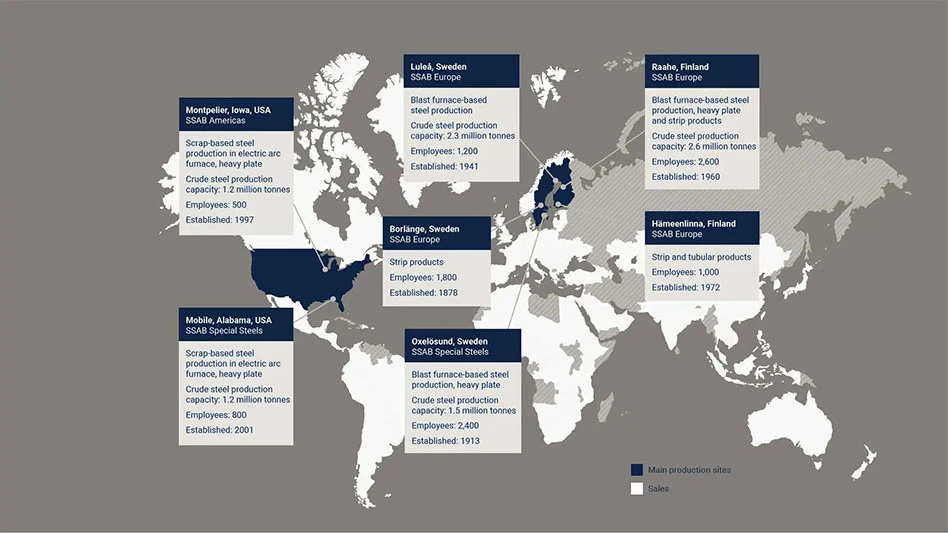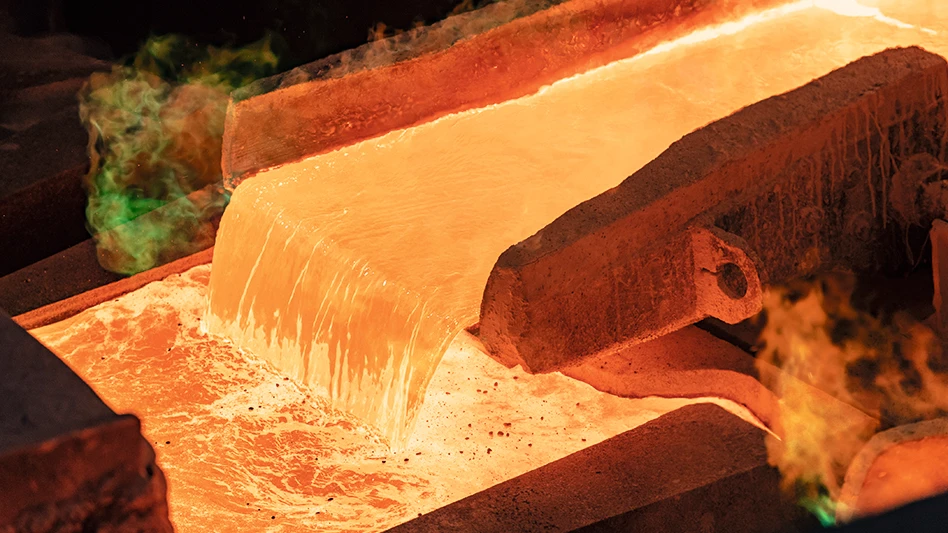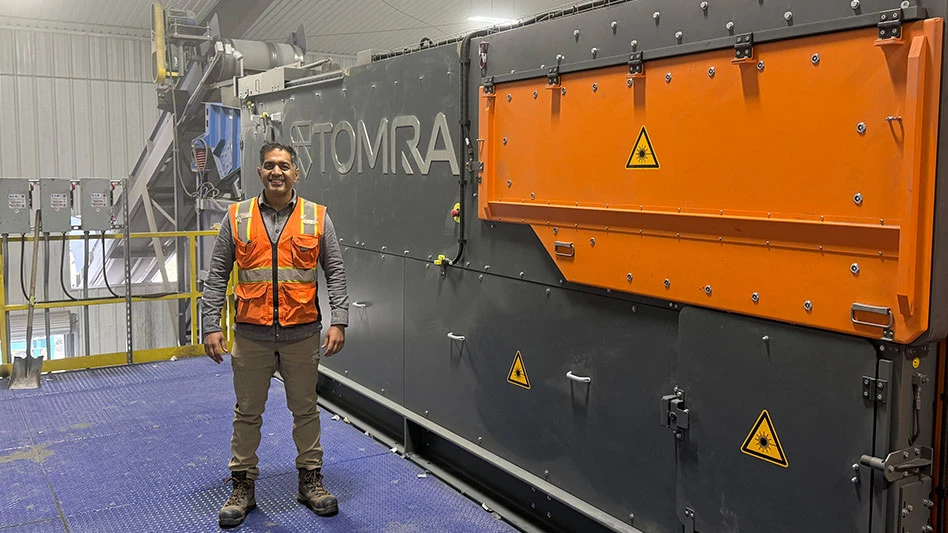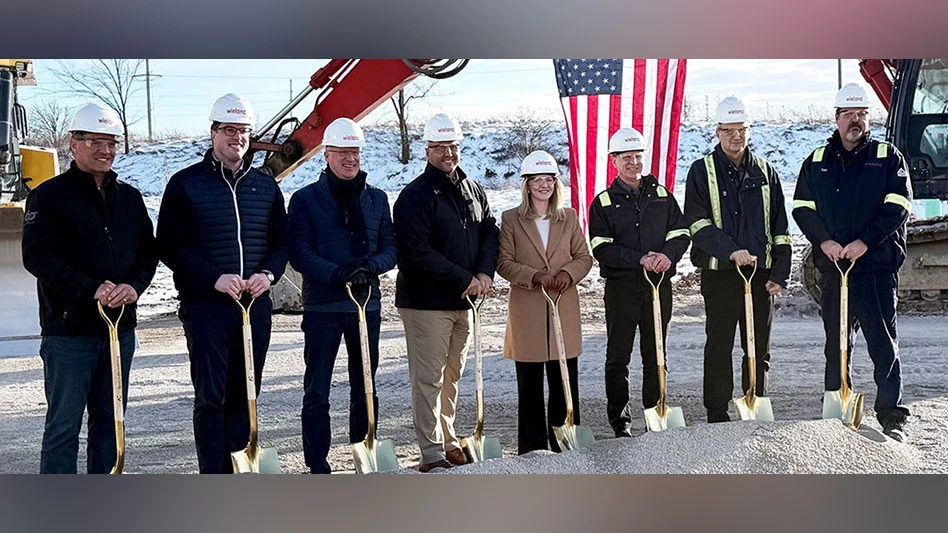
Photo courtesy of Cleveland-Cliffs Inc.
Cleveland-Cliffs Inc. has reported a net loss of $483 million in this year’s first quarter, earning $4.6 billion in revenue compared with $5.2 billion in the same period last year, but up from $4.3 billion in revenue in the prior quarter.
The Cleveland-based steelmaker, which also owns the Detroit-based Ferrous Processing & Trading (FPT) network of metal recycling facilities, cites operational challenges in its mining and steelmaking business units for the money-losing first quarter.
The company, which lost about $700 million in 2024, says in the first half of this year it will fully or partially idle six facilities to optimize its footprint, reposition away from loss-making operations and release excess working capital.
“These actions are expected to result in savings of over $300 million annually, not including additional savings in overhead and improved productivity at other locations,” Cliffs says, adding that the paring back is not expected to impact its flat-rolled steel output, which CEO Lourenco Goncalves calls its core operations.
“The decision to fully or partially idle certain locations was not taken lightly,” Goncalves says. “These actions will allow us to consolidate operations, withdraw from loss-making businesses and deliver annualized savings exceeding $300 million. We are also strategically repositioning our portfolio away from noncore markets, including rail, high-carbon sheet and specialty plate products.”
The facility closures, some of which already have been reported by Recycling Today, include an electric arc furnace (EAF) steel in Steelton, Pennsylvania, a compact strip mill facility in Riverdale, Illinois, and a downstream steel treatment plant in Conshohocken, Pennsylvania.
Another considerable step involves idling the blast furnace, basic oxygen furnace (BOF) steel shop and continuous casting facilities at Dearborn Works in Michigan, to replace with more cost-efficient production upon restarting the No. 6 blast furnace at Cleveland Works.
The company also plans to idle the iron mine in Minorca, Minnesota, and scale back activity at its Hibbing, Minnesota, taconite iron mine, primarily to rebalance working capital needs and consume excess pellet inventory produced in 2024, according to Cliffs.
“Our first-quarter results were negatively impacted by underperforming non-core assets and the lagging effect of lower [steel] index prices in late 2024 and early 2025,” Goncalves says. “As a result, we are taking decisive action to streamline our operations and enhance efficiency.
“This will drive meaningful fixed cost savings and sharpen our focus on our core strength: supplying steel to the automotive industry. The Trump Administration has shown strong support for both the steel and the automotive sectors, and Cliffs is uniquely positioned at the intersection of these two industries.
“As a result of the actions taken by the [Trump] administration designed to boost the production of vehicles in the United States, we have already arranged higher volume commitments with our automotive OEM customers, and we now have a clear line of sight to recover the stable [earnings] base that the automotive business has historically delivered."
With the upcoming restart of the Cleveland No. 6 blast furnace designed to offset the upcoming idle of the Dearborn blast furnace, Goncalves expects no impact to Cliffs' flat-rolled steel output. At the same time, he says, the company is managing pellet inventories and unlocking working capital built up in 2024.
He also cites the winding down of another Cliffs arrangement at the end of this year as another positive.
“Looking ahead, the conclusion of our five-year slab contract with ArcelorMittal/Nippon Steel Calvert [in Alabama] at year-end—nearly 10 percent of our total shipments—presents a significant opportunity,” Goncalves says.
“This agreement has been a major negative contributor for us for several quarters. Despite rising hot-rolled coil (HRC) prices, the pricing structure of this agreement has moved in the opposite direction. That said, this contract goes away toward the end of this year, and, at today’s pricing levels, the contract termination will represent an approximate $500 million benefit to our annualized earnings before interest, taxes, depreciation and amortization (EBITDA) from today’s levels, beginning in 2026."
Regarding the remainder of this year, Goncalves says, “We have healthy liquidity of $3.0 billion, $3.3 billion of secured note capacity and a very well-designed debt maturity profile to navigate through anything the market will throw at us. We also expect dramatically reduced growth capital expenditures going forward due to likely changes in scope on major projects. Most importantly, we are addressing three key areas—automotive volume recovery, repositioning away from underperforming non-core assets, and not renewing an unprofitable slab contract. With market conditions improving and the recent Stelco acquisition aligning well with our broader non-automotive strategy, we are on our way to restoring consistent cash flow generation and debt paydown.”
Latest from Recycling Today
- Eriez expands European sales network
- Gränges increases sales volume in 2025
- Aduro selects Netherlands as site for industrial scale-up facility
- Nasco-Op declares dividend
- Cyclic Materials announces plans for South Carolina campus
- WM reports revenue, earnings growth in Q4 and full-year 2025
- Solarcycle’s Cedartown, Georgia, recycling facility opens
- Stadler equips Spanish MRF





